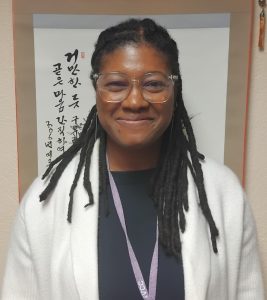Local Planned Parenthood concerned about safety and future
April 27, 2017
For HON 1003, Honors Project students Stephanie Bias, Joshua Wray, Chase Ochsner and Liberty Gehant initially set out to obtain data about the services that Ottawa’s Planned Parenthood location offers. However, our honors project assumed a new direction once we were unable to obtain an interview.
Our original goal was to learn more about how Planned Parenthood serves our community and distributes information to students about their services. We had questions such as how many patients does the Ottawa clinic serve annually? What are their most popular services?
Unfortunately, we were forced to take a different approach after we contacted the Ottawa location. We first called to request an interview, but were told that the location does not work with students.
We then physically visited the location, and this information was reiterated. The secretary provided us with a corporate phone number to call, but they also refused to answer any of our questions.
We then called eight different Planned Parenthood locations throughout Illinois. Each location denied our requests, and the secretary from the Champaign location explained that they do not grant interviews to students, but they do for some press. Due to the fact that we planned to write a newspaper article for our project, they took our information and promised to call us back.
We did not hear from them again.
While Planned Parenthood’s website does provide national statistics regarding the different services that they offer, we hoped to analyze the organization at a local or state level. We were unable to do so.
While disheartening, this process allowed us to realize that it is extremely difficult to find accurate and unbiased data regarding the services that Planned Parenthood provides at local and state levels.
For example, U.S. Congressman Bill Johnson told the House of Representatives that abortions made up 94 percent of Planned Parenthood’s pregnancy services in 2013, whereas CNN states that abortions only make up 3 percent of such services.
A single question arose after our failed attempts to obtain an interview, and that question was why? Why do local Planned Parenthood locations not publicize their data? Why do the organization’s employees refuse to speak with us?
We were able to obtain information regarding why our interview requests were denied from an anonymous Planned Parenthood medical professional.
This professional stated that safety is a very real concern at many locations nationwide, and most representatives remain silent out of fear that their words might be misconstrued and therefore contribute to a larger culture of violence against the organization.
Our source did in fact deny our interview request, citing personal safety concerns and explaining that Planned Parenthood is “under attack” by the media, politics and uninformed members of the public.
According to Planned Parenthood’s 2014-2015 annual report, 45 percent of their services consist of STI/STD testing and treatment, 31 percent are contraception services, 7 percent are cancer screenings and 3 percent are abortion services.
The political attention that Planned Parenthood receives for providing abortion services makes the organization a target for both pro-choice and pro-life movements.
Since 1977, the National Abortion Federation reports that there have been more than 176,000 instances of picketing at clinics, more than 16,000 reported cases of harassment via mail or phone calls and more 400 death threats.
CNN states that over 200 bombings and arson attacks have taken place at facilities that offer abortion services since 1977. Many locations now offer escorts between parking lots and clinics due to these threats.
Despite that we were unable to secure any information about the services that Planned Parenthood offers at a local level, our research allowed us to form a better understanding of the current debate over funding an organization that offers abortions, even if such services account for only a small percentage of their available services.
The debate may never be resolved, as it is both a political and moral debate. State and federal legislation regarding abortions will continue to change as political leaders change. This affects Planned Parenthood now, and will continue to do so in the future.



